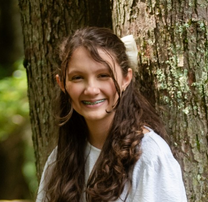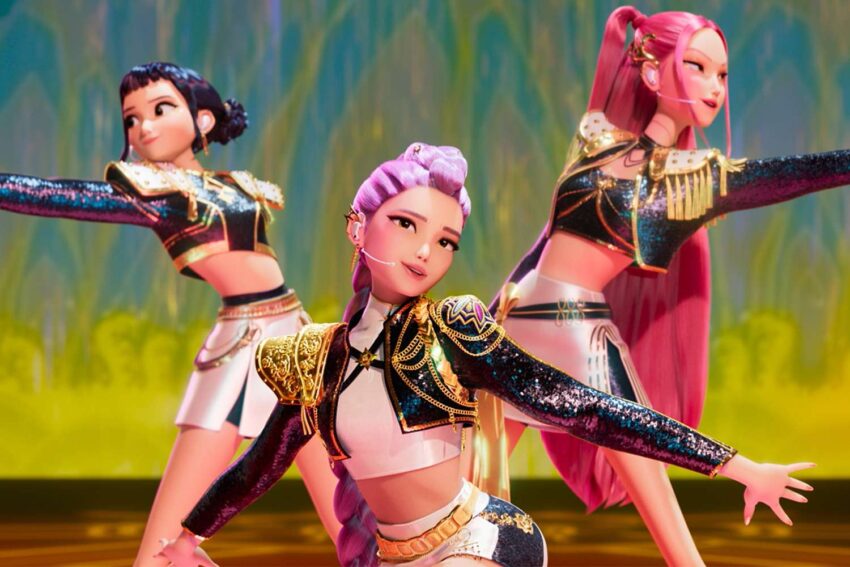At some point in your life as a writer, you will have to choose a target audience. If you plan to be published at some point, or even if you simply want your writing to be read by someone other than yourself, you have to know who you’re writing for. It’s impossible to appeal to everyone on the planet. So, regardless of your writing goals, it’s key that you choose a certain demographic to write for and stick to it.
However, sometimes stories seem to take this concept to an extreme. In fact, recent books and movies seem to be too tailored to their target audiences. Sure Moana 2 and The Summer I Turned Pretty were written with little kids or teens in mind, but suddenly that means they can only be enjoyed by those little kids or teens. In short, too many modern stories have become exclusive.
How can we fix this? How can we write for a target audience without shunning everyone else? How can we keep our stories from working like an exclusive clique?
Here to answer that is the movie that has recently taken the world by storm: K-Pop Demon Hunters.
K-Pop Demon Hunters
Rumi, Mira, and Zoey, are a trio of glittering K-pop stars who live double lives as demon hunters. Using their magical weapons and original songs, they are able to protect their fans by keeping invisible demons locked away behind a magical barrier known as the Honmoon. Although the girls all come from different backgrounds, they’ve formed a powerful family together. They’ve grown so powerful, in fact, that the leader of the underworld, Gwi-ma, is beginning to get nervous. If the girls turn the Honmoon ‘golden’, it will become impossible for him to ever rule the surface again.
So, the demons retaliate. They form a mystical boy-band of their own to take down the girls forever and steal the souls of their fans. This throws the hunters into chaos, forcing each of them to confront their pasts as well as what they truly believe about the demons they’ve been battling for years.
What It Really Means to Have A Target Audience
This movie’s target audience is clear: K-pop fans and tween girls. The humor, the personalities, and premise, and even the animation style are clearly meant for a younger female audience, or anyone who’s interested in K-pop music and Korean culture. However, this hasn’t hindered its success. The pink and sparkly title hasn’t stopped the songs from trending worldwide. Just because K-Pop Demon Hunters has a target audience, doesn’t mean that it can’t be enjoyed by everyone.
Despite its startling title and girl-y aesthetic, K-Pop Demon Hunters contains an incredible story. The characters, especially the main three girls, have deep internal conflict and unique personalities. The plot has multiple twists. And, most important of all, the themes of friendship and brokenness are heartwarmingly beautiful.
Just because your story may be written for a certain demographic – whether it be boys or girls or little kids or adults – doesn’t mean the quality of your content has to change. When something is written ‘for kids’ it’s often dumbed down or simplified, making it impossible for a parent or older sibling to enjoy. On the other end of the spectrum, writers will put unnecessarily vulgar elements into a story to make their story seem ‘mature’ and keep the attention of adults. Either way, whether the content is stupidly simplified or filled to the brim with violence, it’s no excuse for bad writing.
The way you write for a target audience without being exclusive is by working to craft a good story first. Focus on making unforgettable characters, a creative premise, and a strong theme that anyone can relate to, before honing in on your brand to draw specific people in. Then, once you have a solid story, you can work on making it appeal to certain groups.
Having a target audience doesn’t mean your book should only be enjoyed by that audience. Pick a demographic to write for, but don’t let that affect the quality of your story. Let your audience change the aesthetic and marketing strategy of your novel, but not its positive role models or powerful themes. Write an excellent book with others in mind, but don’t be exclusive with your story.



Let us know:
What stories have you read recently that had a clear target audience without becoming too exclusive?


Hello, I’m Sophia! I’m a child of God and I (if you couldn’t tell already) love to write! I’m also a total theater kid and strong dessert (specifically cupcake) enthusiast. For as long as I can remember, I’ve enjoyed both reading and making my own stories. I’m so glad I get to share with you what I’ve learned from some of my favorite (or sometimes least favorite) stories on this blog.


This is so well written! I really enjoyed reading this!
Yay! Thank you so much, Sinaiyah!
I love this article! I never thought about it before reading this, but some of my favorite stories have a target audience that I’m not a part of, and yet are still accessible to me. The Terry Pratchett book I’m reading, Soul Music, has a lot of jokes intended for people who are deep into Rock music, but has an overarching theme of what it means to be alive and love, so I still enjoy it though I know nothing about British Rock bands. Great work, Sophia!
Yes, that’s exactly what I mean. I’m glad you’ve been enjoying that book about British Rock Bands 😆. Thank you so much, Grace!
I mostly just write for myself to be honest. If other people like it that’s cool too